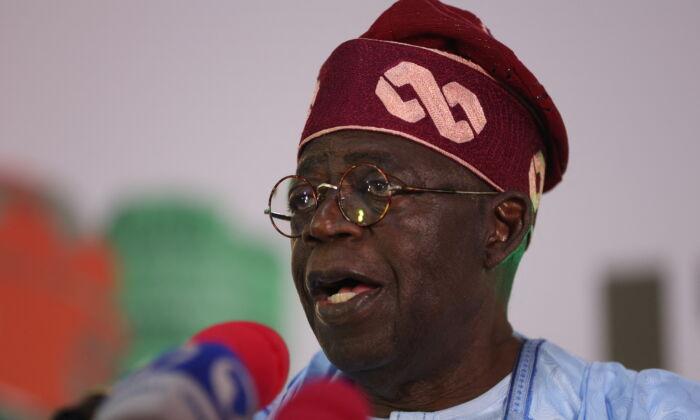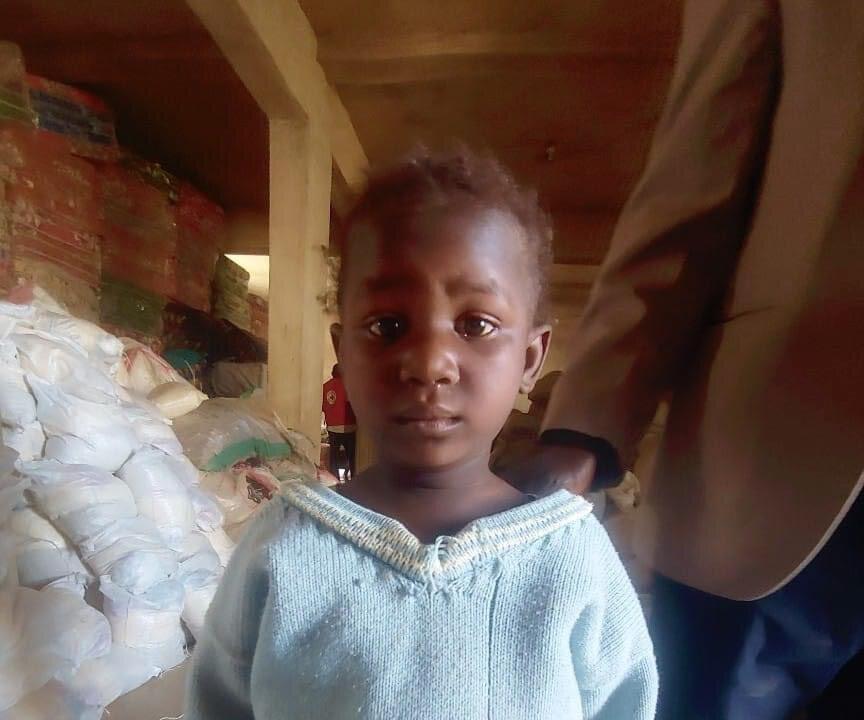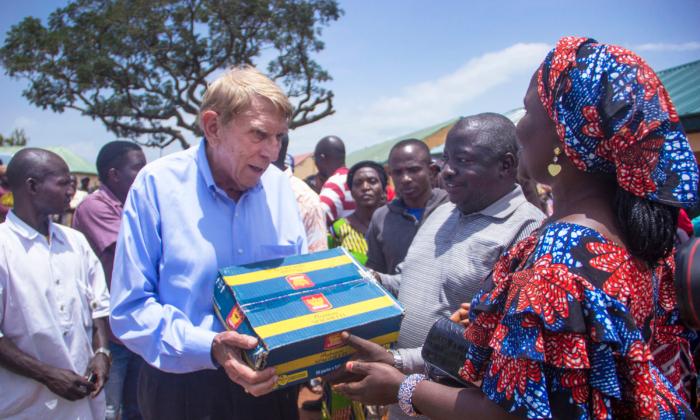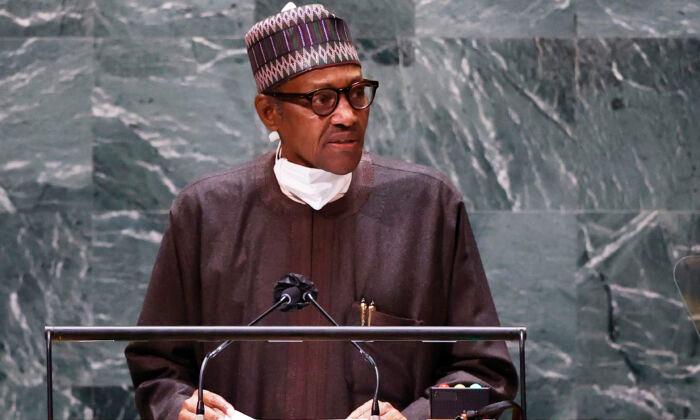China is making significant strides in solidifying its presence in Nigeria through the newly inaugurated administration of Nigerian President Bola Tinubu, according to a national politician.
Early talks between Chinese officials and Tinubu, who took office on May 29, indicate that the Chinese Communist Party (CCP) is looking to expand its foothold in Africa’s largest democracy under the new government, Simon Mwadkwon, a member of the Nigerian Senate, told The Epoch Times.
“For China to have run to the new president at the onset of his administration to make offers, I suspect something sinister,” said Mwadkwon, the representative of Plateau North.
“They have an agenda to rule the world, and Nigeria is a strategic target for the attainment of those goals because of its population and influence in Africa.
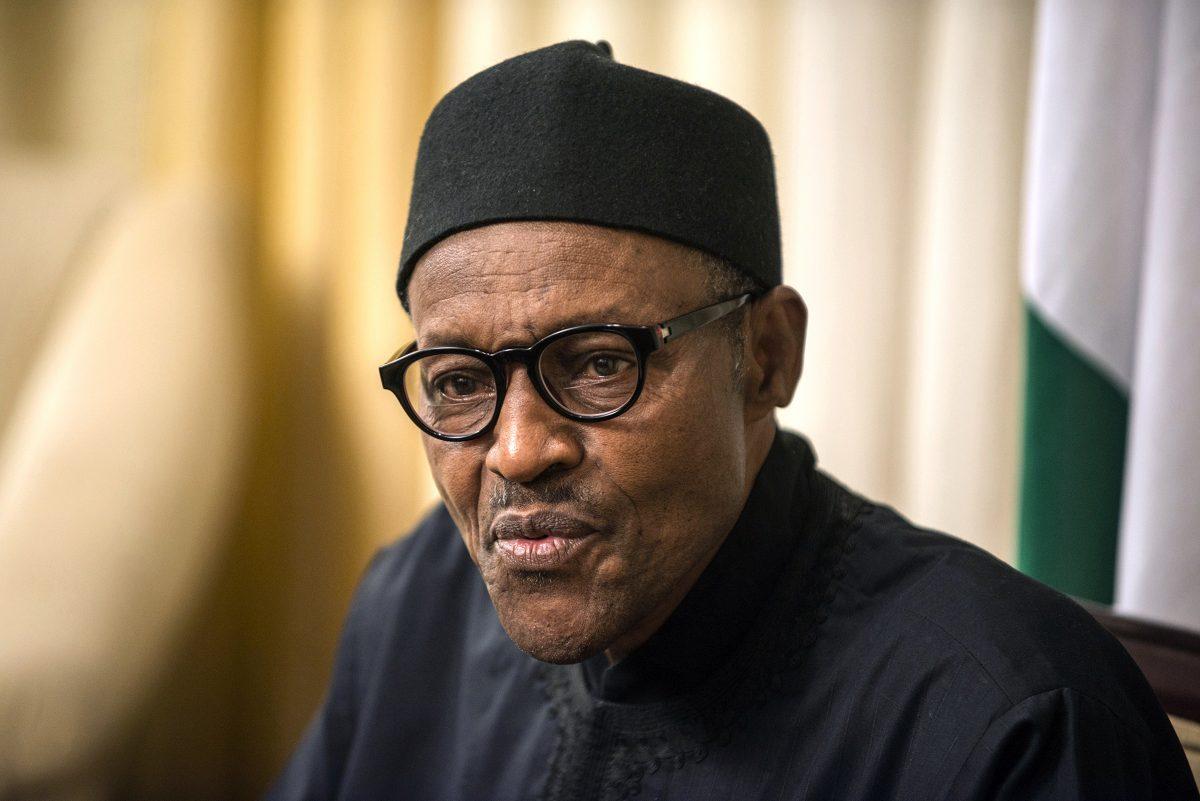
“The immediate past administration of President Muhammadu Buhari took loans from China without a focus, raising the level of Nigeria’s indebtedness to China beyond reasonable heights, and Chinese authorities are looking to consolidate on that.”
On May 31, Chinese Special Envoy to Nigeria Peng Qinghua—who also serves as the vice chairperson of the Standing Committee of the National People’s Congress in China—held a crucial meeting with Tinubu at the State House in Abuja, Nigeria.
The meeting was the second between Tinubu and Chinese officials since his election on Feb. 25.
During a seminar at the University of Abuja on April 5, the Chinese ambassador to Nigeria, Cui Jianchun, revealed that he had engaged in discussions with Tinubu and Vice President-elect Kashim Shettima.
Jianchun emphasized the importance of increasing productivity in Nigeria and expressed efforts to attract Chinese investment and facilitate exporting Nigerian products to Chinese markets.
‘Chinese colony’
In January, China launched a “game changer” deep seaport in Lagos, Nigeria’s largest city.The port, valued at $1.5 billion, is 75 percent owned by the China Harbour Engineering Company and Tolaram Group, with smaller stakes held by the Lagos state government and the Nigerian Ports Authority.
The port is one of several Chinese-owned infrastructure projects in Nigeria, with at least 11 of them funded through Beijing’s loans to the Nigerian government, according to Mwadkwon.
“I am afraid for Nigeria if urgent steps are not taken to review all the loans Nigeria has taken so far from China—to look at their terms and present repayment status and immediately offset them through whatever means and get us out of the ploy by China to make us one of their colonies like they have attempted to do in Uganda and Sri Lanka,” Mwadkwon said.
Debt-Trap Strategy
In August 2020, Mwadkwon was among the representatives who demanded a review of the conditions under which China provides aid to Nigeria, to avoid a debt trap.This came after the discovery of a suspicious clause in a US$500 million commercial loan agreement signed on Sept. 5, 2018, between the Federal Ministry of Finance and the Export-Import Bank of China for the Nigeria National Information and Communication Technology Infrastructure Backbone Phase II Project.
The clause reads: “The borrower [i.e., the state of Nigeria] hereby irrevocably waives any immunity on the grounds of sovereign or otherwise for itself and its property in connection with any arbitration proceeding pursuant to Article 8(5), thereof with the enforcement of any arbitral award pursuant thereto, except for the military assets and diplomatic assets.”
“The waiving of immunity simply means in trade parlance that I’m not giving you this loan free,” Amaechi said. “Just like if you go to take a loan from the bank, the moment you don’t pay, they go after the assets you put down.”
This alleged debt-trap strategy has raised alarm bells globally.
Even when it announced in August 2022 that it was forgiving 23 loans for 17 African countries, China failed to specify the countries or the amount of loan forgiveness.
Calls for Counter Agreements
With massive savings anticipated from its scrapped multimillion-dollar oil subsidy system, along with a burgeoning service economy, analysts speaking to The Epoch Times say Nigeria has the potential to extricate itself from China’s debt trap.However, this would require interventions from Western powers, they maintained.
Teniola Tayo, a trade policy fellow at the Africa Policy Research Institute, told The Epoch Times that “Chinese loans have played a part in infrastructure financing [in Nigeria] and may continue to do so.”
“China has an advantage in building and financing infrastructure projects [under the new administration],” Tayo wrote in a text message.
“[But] I believe the new government will be exploring different opportunities for infrastructure financing, provided other partners approach them with proposals.”
The best bet for Nigeria is to approach its Western allies with whatever China is offering and negotiate a counter agreement, U.S. analyst and former Illinois congressional candidate Sargis Sangari told The Epoch Times.
This is especially true as China’s main goal is to use Nigeria to get a strategic footprint in Africa and defeat the United States and other allied countries in the continent, said Sangari, who’s also a retired lieutenant colonel in the U.S. Army.
“It is up to Nigeria to decide to stay with the West on the side of democracy or a government that massacres its own people,” he said.
“Nigeria has to be aware that as it is taking Chinese money, it is enslaved to China.
“In the future, China will start identifying and investing in Nigerians to rise to the position of leadership and control the army and further the cause of the communist party in Nigeria.
“These leaders are going to be carrying out military decisions on behalf of China.”
